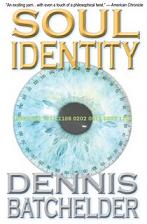Sometimes, as I lay in bed at night, I think I can hear seagulls shrieking
in the distance. If I close my eyes, I can visualize pieces of fish bobbing
on the frothy whitecaps of the North Sea, after falling out of the nets of
the colorfully painted trawlers coming into the harbor. Sometimes a tear runs
down my cheek onto my pillow as I think about Edinburgh, Scotland, my hometown.
I lived in an older part of the city, known as Newhaven, which was eventually
ncorporated into the larger city and capitol, Edinburgh. It was settled in
the 1500’s, after King James IV decided to use Newhaven as the place
to build warships. My ancestors came over from Flanders, bringing fine linens
and ropes for the King, and ended up staying there permanently.
After the great warship era had passed, Newhaven settled down into a quiet
fishing village, which is the way it still was when I was born. When I was
a wee lassie, I’d go with my mum and dad to watch the fishing boats.
They sailed into the tiny, man-made harbor, passing by the lighthouse that
perched on the sea wall. The trawlers were filled with herring and cod. A plethora
of seagulls screeched overhead, swooping down at the boats, hoping to scoop
up a herring that had fallen overboard into the choppy, black sea.
The women scurried down the steep, cobblestone streets, towards the maddening
crowds at the fish market, trying to fill their creels with the largest and
freshest fish. My grandma always smiled at me as she walked by with her load
of fish. She dressed in a yellow and white striped pinafore that fitted tightly
over a dark blue canvas-like dress. All the fisherwomen of Newhaven looked
much the same. They wore the same pinafores and dresses, and wore their hair
pulled back off their faces, very severe looking; nevertheless, I could always
pick my grandma out of the crowd.
Just before my family left Scotland to sail to Australia, my grandma gave
me a striped pinafore, just like the one she wore. She stood sadly, on the
quay and waved to me as I boarded the ship. I wept as I waved my final farewell.
A lone bagpiper seemed cemented to the dock as he played, “The Bonnie
Banks of Loch Lomond.” The anchor was then devoured into the bowels of
the ship. Seagulls squawked and soared around my grandma as the ship pulled
away from its berth.
It would be twenty three years before I would see the heather’d hills
of Scotland again. The years passed quickly. The winds of change left their
mark on my homeland. The fishing trawlers vanished, the old lighthouse and
fish market decayed into rubble, time-weathered and in disarray.
I walked through the ancient cobblestone streets of Newhaven, memories of
my grandma and my life as a child haunted me. I could picture her in her fisherwoman
attire, calling, “Who’ll buy my herring?”
As I stood at the harbor, I observed several seagulls flying overhead. I
could still smell the odor of fish clinging to the stone floors of the market.
I heard the never ceasing waves as they dashed themselves against the old walls,
throwing a misty vapor high into the sky. I ran my hand along a steel railing
that had been painted apple red. It was icy cold to my touch. I wished, just
for a moment, that I could go back to the warm days of my childhood in Newhaven,
my hometown.
|
